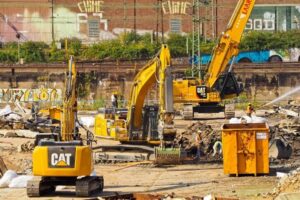If you’re finally ready to buy your first home, you might be wondering whether or not it’s worthwhile to opt for a fixer-upper home instead of a pricey new development.
While the pros of purchasing a new development home include being able to move right in, not having to spend on initial improvements, avoiding the costs of upgrades in the near future, and obtaining accurate property value, the primary downfall is the higher cost of new homes.
It can be tricky to make a confident decision, especially if you don’t know the ins and outs of each option.
So, when it comes to the pros and cons of a fixer-upper home, we’ve got them listed for you in this article.
The Pros
One of the most significant perks of house hunting for a fixer-upper that you’ll immediately note is the price; homes that need substantial work will be pretty cheap. You can also house hunt for these kinds of homes in all areas. You’ll find new and neglected homes in Nashville Real Estate listings and every other area you can imagine.
Moreover, you’ll be able to negotiate the asking price lower and potentially save even more money on the purchase. In addition to this, you can upgrade and modify your fixer-upper home to suit your needs and preferences, which means you can ultimately create your dream home through improvement projects.
Buying a fixer-upper home can potentially be a savvy investment. However, you will need to choose the right property and budget for improvements and time.
The Cons
On the other hand, there are also relevant cons associated with buying a fixer-upper home. For starters, you’ll need to consider the costs of improving and upgrading the home and not just the low purchase price.
Next, you’ll need to be wary of structural issues, and other significant repair work that you should steer clear of while house hunting; some repair jobs on homes will cost a massive fortune. Roof repairs, foundation repair and restoration, water damage, mold removal, and pest infestations are among the most costly repair jobs to avoid.
And lastly, there’s a good chance you won’t be able to move into your home until essential repair work has been completed.
The Bottom Line
After considering all the significant pros and cons of buying a fixer-upper property, you can make a decision that suits your budget and your property goals.
But with that said, it’s still wise to rely on a real estate agent to help you find your ideal home as soon as possible. In addition to a real estate agent, be sure to opt for a professional home evaluation before closing the deal; a professional evaluation will uncover the property’s accurate value, while estate agents and homeowners simply make calculated assumptions.
Whether you choose to opt for new development or a home that needs a bit of TLC, be sure to rely on the right professionals to ensure you end up with the home of your dreams.





